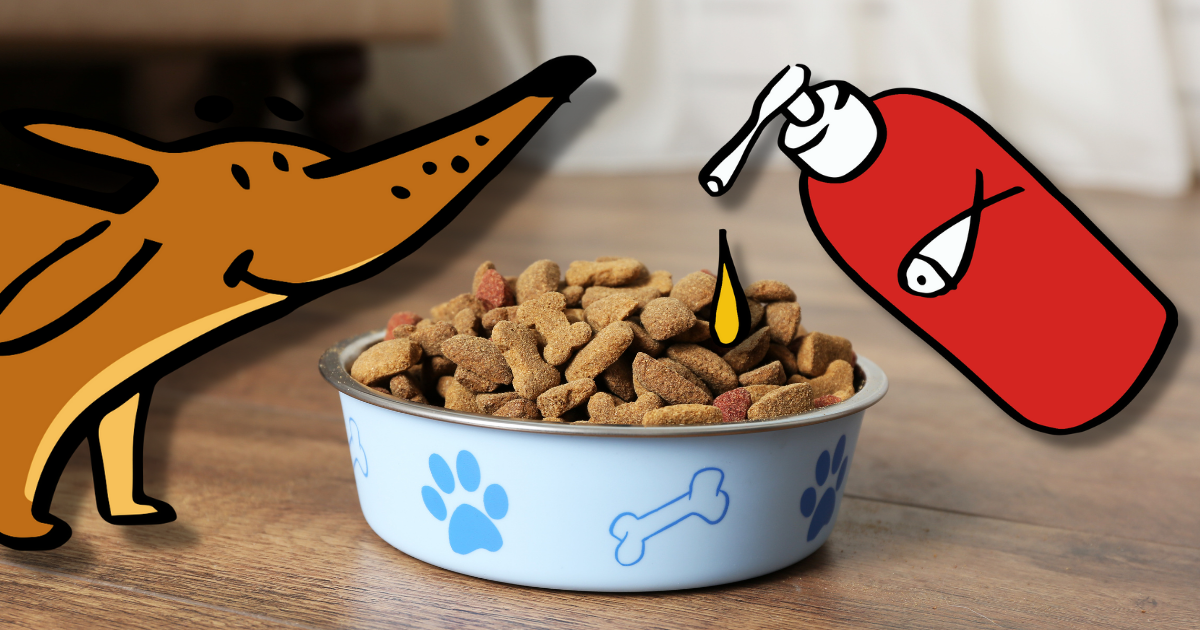
Side Effects of Salmon Oil for Dogs: Benefits and Risks
August 17, 2023Salmon oil has gained immense popularity as a nutritional supplement for dogs, thanks to its rich omega-3 fatty acids content that can promote a shiny coat and healthy skin and support overall well-being. While this fish-derived oil is generally safe and beneficial for your furry companions, it is essential to be aware of potential side effects, especially when administering high doses. This article will explore the benefits and risks of salmon oil for dogs and offer guidance on choosing the best quality product for your beloved pets.
The Benefits of Salmon Oil for Dogs
Salmon oil is a potent source of omega-3 fatty acids, specifically EPA (eicosapentaenoic acid) and DHA (docosahexaenoic acid). These essential fatty acids play a crucial role in your dog's health by:
Promoting Healthy Skin and Coat

Omega-3 fatty acids help alleviate itching, dryness, and flakiness, leading to a lustrous coat and healthy skin.
Supporting Joint Health

Salmon oil possesses anti-inflammatory properties that can aid in reducing joint inflammation and improving mobility, making it particularly beneficial for older dogs or those with arthritis.
Boosting Immune Function

Omega-3s can bolster your dog's immune system, helping them combat infections and diseases.
Enhancing Heart Health

Studies have shown that omega-3 fatty acids may contribute to cardiovascular health by reducing the risk of heart disease.
Aiding Cognitive Development

DHA, one of the essential omega-3s in salmon oil, is crucial for brain development in puppies and can support cognitive function in dogs of all ages.
Possible Adverse Effects of Salmon Oil on Dogs
When used in appropriate doses, salmon oil is generally safe for dogs. However, excessive consumption or sudden introduction of high doses can lead to some side effects:
Gastrointestinal Upset

Some dogs may experience diarrhea, vomiting, or excessive gas if they are not accustomed to the oil. Introducing salmon oil gradually to your pet's diet is crucial to minimize digestive issues.
Weight Gain

Salmon oil is calorie-dense, and overfeeding can lead to weight gain in dogs. Adjust the dosage according to your dog's size, age, and activity level to avoid unnecessary weight gain.
Interference with Blood Clotting

Omega-3 fatty acids have a mild blood-thinning effect. While this can be beneficial in some instances, it could be problematic for dogs on anticoagulant medication or scheduled for surgery. Always consult your veterinarian before using salmon oil if your dog falls into these categories.
Properly Incorporating Salmon Oil into Your Dog's Diet
Adding salmon oil to your dog's diet requires a thoughtful approach to ensure maximum benefits without adverse effects. Follow these guidelines:
1. Consult Your Veterinarian

Get personalized advice on dosage and administration.
2. Choose a High-Quality Product

Our salmon oil for dogs delivers a perfect blend of omega-3 fatty acids, promoting a shiny coat, healthy skin, flexible joints, and a robust immune system. Give your furbabies the best care, and try out our salmon oil for dogs.
3. Start Gradually

Introduce small amounts over a week or two to avoid upset stomachs.
4. Determine the Correct Dosage

Follow recommended guidelines based on size and age.
5. Mix with Food

Drizzle over regular meals; dogs usually enjoy the taste.
6. Monitor Your Dog's Response

Observe any changes and consult the vet if needed.
7. Stay Consistent

Make it part of their routine for optimal results.
8. Adjust as Needed

Tailor the dosage, if necessary, under veterinary guidance.
9. Store Properly

Keep in a cool, dark place, and seal the container tightly after use.
Conclusion

Salmon oil can be a valuable addition to your dog's diet, providing numerous health benefits ranging from improved skin and coat to enhanced joint function. While it is generally safe, responsible pet owners must exercise caution and avoid overfeeding to prevent potential side effects. Gradually introduce the supplement into your dog's diet and consult your veterinarian if your pet has any underlying health conditions or is on specific medications. Remember, happy and healthy dog results from well-informed and caring pet ownership.
